
Children categories
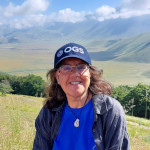 She graduated in Biological Sciences from the University of Siena in 1977, and worked as a research biologist and marine ecologist at the Anton Dohrn Zoological Station in Naples, at the current Ischia Marine Center, from 1983 to 2021, coordinating the Ischia team for some periods. Since 2021 she has been an associated researcher at the National Institute of Oceanography and Experimental Geophysics - OGS in Trieste, she is also associated with ISPRA-Rome (September 2023) and the Polar Scientific Institute of the CNR in Messina (May 2024). She has worked in the field of ecology of benthic biota, and coastal benthic ecosystems, with particular focus on the taxonomy and ecology of polychaete marine worms, and the ecology of seagrass systems, especially Posidonia oceanica. She has also worked in coastal polar environments, participating between 1989 and 2006 in 6 oceanographic expeditions to Antarctica and sub-Antarctica within the PNRA and the German and Spanish programmes, coordinating the research group of the SZN team in Ischia. For over 20 years she has been studying the effects of climate change on the benthos, in relation to both the increase in temperature (heat waves, alien species) and ocean acidification. In this later topic she is studying the ecology and eco-physiology of the benthic biota, including seagrasses, which live in particular coastal hydrothermal systems characterized by CO2 emissions from the seabed (vents) and natural acidification of the waters both at Ischia and in the Aeolian islands. She has supervised approximately 36 master's theses, 11 PhDs and 4 post-docs. She has served as Editor-in-Chief of the Journal Marine Ecology (Wiley; 2005-2013) and has published over 300 scientific papers and 4 books. Passionate about classical and popular music, she completed regular flute studies at the R. Franci music school of Siena.
She graduated in Biological Sciences from the University of Siena in 1977, and worked as a research biologist and marine ecologist at the Anton Dohrn Zoological Station in Naples, at the current Ischia Marine Center, from 1983 to 2021, coordinating the Ischia team for some periods. Since 2021 she has been an associated researcher at the National Institute of Oceanography and Experimental Geophysics - OGS in Trieste, she is also associated with ISPRA-Rome (September 2023) and the Polar Scientific Institute of the CNR in Messina (May 2024). She has worked in the field of ecology of benthic biota, and coastal benthic ecosystems, with particular focus on the taxonomy and ecology of polychaete marine worms, and the ecology of seagrass systems, especially Posidonia oceanica. She has also worked in coastal polar environments, participating between 1989 and 2006 in 6 oceanographic expeditions to Antarctica and sub-Antarctica within the PNRA and the German and Spanish programmes, coordinating the research group of the SZN team in Ischia. For over 20 years she has been studying the effects of climate change on the benthos, in relation to both the increase in temperature (heat waves, alien species) and ocean acidification. In this later topic she is studying the ecology and eco-physiology of the benthic biota, including seagrasses, which live in particular coastal hydrothermal systems characterized by CO2 emissions from the seabed (vents) and natural acidification of the waters both at Ischia and in the Aeolian islands. She has supervised approximately 36 master's theses, 11 PhDs and 4 post-docs. She has served as Editor-in-Chief of the Journal Marine Ecology (Wiley; 2005-2013) and has published over 300 scientific papers and 4 books. Passionate about classical and popular music, she completed regular flute studies at the R. Franci music school of Siena.
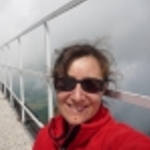 Education and previous professional experience. PhD in Chemistry from the University of Milano (2003). Degree in Chemistry from the University of Milano (2000)
Education and previous professional experience. PhD in Chemistry from the University of Milano (2003). Degree in Chemistry from the University of Milano (2000)
Senior researcher at the Institute of Polar Sciences of the National Research Council of Italy (ISP-CNR), August 2019 – present. Researcher at the Institute of Atmospheric Sciences and Climate of the National Research Council of Italy (ISAC-CNR), July 2011-July 2019. Visiting scientist at the Finnish Meteorological Institute, February 2011- March 2011. Researcher at the Joint Research Center of the European Commission, October 2007-September 2010. Researcher at the University of California San Diego, July 2005-September 2007. Researcher at the University of California Davis, February 2004-July 2005. PhD in Chemistry from the University of Milano (2003) Degree in Chemistry from the University of Milano (2000)
International activities. Editor for "Atmospheric Chemistry and Physics" (since 2013). Editor for "Aerosol and Air Quality Research" (since 2011). Guest Editor for "Atmosphere" special issue on Aerosol Mass Spectrometry (2017). Referee for scientific papers: Atmospheric Chemistry and Physics, Atmospheric Environment, Environmental Pollution, Environmental Science and Technology, Journal of Geophysical Research. Italian expert in the “Expert Group on Black Carbon and Methane” of the Arctic Council (since 2019). Working group leader for organic aerosol source apportionment of the COST Colossal project (2017-2021).
Area of scientific interest: Chemical and physical characterization of atmospheric aerosol with particular attention to the carbonaceous components, their chemical composition, microphysical properties, climate-relevant properties, and formation mechanisms. Cloud - aerosol interaction. Impact of air quality and climate change on fog formation.
Author of 58 publications in peer review journals and 5 chapters in books (h-index 21 – web of science)
Scopus - Author ID: 6602523027 ![]() http://orcid.org/0000-0002-7312-5571 WoS Researcher ID: P-1283-2014 Google Scholar
http://orcid.org/0000-0002-7312-5571 WoS Researcher ID: P-1283-2014 Google Scholar
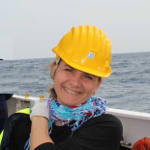 Degree in Geological Sciences - University of Bologna, 1999. Researcher at the CNR ISMAR in Bologna, 2000- 2019. Researcher at the CNR-ISP in Bologna, 2019-present.
Degree in Geological Sciences - University of Bologna, 1999. Researcher at the CNR ISMAR in Bologna, 2000- 2019. Researcher at the CNR-ISP in Bologna, 2019-present.
She deals with sedimentological, mineralogical and biogeochemical reconstructions, transport pathways and depositional processes of the bottom sediments and suspended particles; assessments of impact by inputs of nutrients and contaminants from urban, industrial, harbours, aquaculture and offshore activities in lakes, transitional environments, and coastal to deep marine ecosystems. She specialized in the phosphorus cycle to identify the causes of the onset of dystrophic crises, anoxic crises and mucilaginous phenomena. She studies the biogeochemical cycles of carbon, nutrients and metals, their speciation, early diagenesis processes, bioavailability and benthic flows at the water-sediment interface.
She has been participated to the deployment and management of permanent automatic buoy stations and moorings and the development, calibration and validation of sediment incubators, benthic chambers and landers for the measurement, sampling and analysis of marine environmental parameters for marine researches and monitoring.
She is involved in the study of carbon, nutrients, contaminants and organic matter in particulates and in their calculations of mass balance, vertical flows and lateral transport from the continental shelf to deep basins.
Participation in EC, PRA and PNRA Projects, Conventions with Italian Regional Authorities and Contracts with large and small-medium Enterprises. PI or WP leader of national and international projects. More than 50 oceanographic cruises (25 as Chief Scientist). Supervisor and tutor in over 30 degree thesis and traineeships. Author and co-author of ca. 100 scientific reports, 20 publications, 50 abstracts, 149 citations, H index = 8 (Scopus).
![]() http://orcid.org/0000-0001-5662-2659 Scopus
http://orcid.org/0000-0001-5662-2659 Scopus
 Bachelor in Geology at the Federal University of Rio Grande do Sul (UFRGS) and Master in Geochemistry from the same University. Since 2022 is developing his PhD thesis at Ca’ Foscari University of Venice in the program of Polar Sciences studying organic molecules in an Andean ice core to unveil the paleofire history in the Amazon region.
Bachelor in Geology at the Federal University of Rio Grande do Sul (UFRGS) and Master in Geochemistry from the same University. Since 2022 is developing his PhD thesis at Ca’ Foscari University of Venice in the program of Polar Sciences studying organic molecules in an Andean ice core to unveil the paleofire history in the Amazon region.
 She mainly deals with the development of analytical methods for the determination of legacy and emerging organic pollutants, in various environmental matrices. Among the areas of interest are the air quality, the analysis of pollutants in gas chromatography-mass spectrometry, the determination of microplastics, the application of statistical techniques for the evaluation of pollution sources. She has worked on several European projects, managed collaborations for research activities also with private companies, has been a correlator of various theses. She studied in Venice, where she obtained a bachelor’s degree in chemistry in 2005 and a master’s degree in chemistry and environmental Compatibility in 2007, both with full grades. In 2011 she obtained the double degree of Doctor of Philosophy in Chemical Sciences at the Ca' Foscari University of Venice and of Biological Sciences, at the Universidade Estadual Paulista of Botucatu (San Paolo - Brasile). During her doctorate, she focused mainly on antioxidant power analysis in foods, including fruit and propolis. Between 2009 and 2010 she spent a period of 6 months at the Institute of Biosciences of the University of São Paulo, working mainly on fruits originating from the tropical zone of Brazil and poorly studied until then. From 2012 to 2017 she was a research fellow at the Institute for the Dynamics of Environmental Processes (IDPA-CNR), in 2017-2018 a research technologist of the ECOMOBILITY project at the University of Ca' Foscari Venice and from July 2019 a researcher of the III level at CNR-ISP.
She mainly deals with the development of analytical methods for the determination of legacy and emerging organic pollutants, in various environmental matrices. Among the areas of interest are the air quality, the analysis of pollutants in gas chromatography-mass spectrometry, the determination of microplastics, the application of statistical techniques for the evaluation of pollution sources. She has worked on several European projects, managed collaborations for research activities also with private companies, has been a correlator of various theses. She studied in Venice, where she obtained a bachelor’s degree in chemistry in 2005 and a master’s degree in chemistry and environmental Compatibility in 2007, both with full grades. In 2011 she obtained the double degree of Doctor of Philosophy in Chemical Sciences at the Ca' Foscari University of Venice and of Biological Sciences, at the Universidade Estadual Paulista of Botucatu (San Paolo - Brasile). During her doctorate, she focused mainly on antioxidant power analysis in foods, including fruit and propolis. Between 2009 and 2010 she spent a period of 6 months at the Institute of Biosciences of the University of São Paulo, working mainly on fruits originating from the tropical zone of Brazil and poorly studied until then. From 2012 to 2017 she was a research fellow at the Institute for the Dynamics of Environmental Processes (IDPA-CNR), in 2017-2018 a research technologist of the ECOMOBILITY project at the University of Ca' Foscari Venice and from July 2019 a researcher of the III level at CNR-ISP.
Scopus - Author ID: 26649910100 ResearchGate Google Scholar
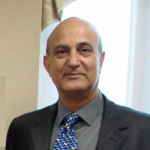 Since 1990 he is full professor of Ecology at the Faculty of Science of the University of Messina (Italy). General Secretary in the following NATO courses coordinated by Dr Trevor Platt, Halifax, Canada: (a) Lipari Island, Italy (12-24 October 1980) on Physiological ecology of Phytoplankton, (b) Bombannes (Bordeaux, France 12-20 May 1982) on Flows of energy and materials in marine ecosyistems: theory and practice, (c) S. Miniato, Italy (1-7 October 1985) on Physiological Ecology of photosynthetic Picopl9ankton in the Ocean. From 1990 to 2002, Italian Delegate to the Scientific Commission of the CCAMLR (Commission for the Conservation of Antarctic Marine Living Resources, Hobart (Tasmania, Australia). Over 60 months accumulated research experience at sea, including the following PNRA Italian Antarctic Expeditions as Principal Investigator: III Exp. (Terra Nova Bay Ecosystem,1987-88), V (South Pacific Sector,1989-90), X ROSSMIZE (Ross Sea Marginal Ice Zone Ecology,1994-95), XIII PIPEX (Pack Ice Plankton Expedition,1997-98), XV PIED (Pack Ice Ecosystem Dynamics 1999-2000), XX SEAROWS (Sea ice Ecology in the Antarctic: ROss and Weddell Seas) on the Polar Queen, Cariboo, Italica (1987-2002), Peri-Antarctic Oceanographic Expeditions in the Strait of Magellan I (1991) and II (1995), and one Arctic canadian cruise by N/R Hudson (1980). He has been Scientific Responsible of the Operative Unit Zooplankton and Micronekton in the following European projects: VECTOR, RITMARE, COCONET, MARINE STRATEGY. From 1968 to now, his research activity has been continuously addressed to issues on the zooplankton and micronekton ecology and biodiversity. Its main fields of study concern: (a) spatio-temporal distribution and daily vertical migrations (DVM) of marine zooplankton and micronekton communities in the Mediterranean and Polar ecosystems, in relation to the physical, chemical and biological water mass structure) (b) brackish environments functioning and biological response to stressor variables, (c) functioning of the coastal and pelagic food chain, with particular regard to the role of euphausiid and mesopelagic fish in the Deep Scattering Layer (DSL) (d) zooplankton role in the carbon cycle, (e) particles size spectrum (OPC) in the study of aquatic ecosystems (f) effects of climate change on the biology and ecology of Antarctic sea-ice and free water zooplankton communities. During 18 PNRA Antarctic expeditions (1987-2018) in Terra Nova Bay, Ross Sea and South Pacific Sector in free water and pack-fast-ice he collected about 6000 samples which are part of the zooplankton and micronekton collection laboratory of the University of Messina. In addition to the classic mesozooplankton and micronekton such as WP2, Indian Ocean Standard Net (IOSN), Bongo 40, IKMT, PHN, advanced electronic multinet are part of its field instrumentation such as BIONESS (1 m2) with 12 nets, MININESS (0.25 m2) with 10 nets 200, 500 and 1000 um, MICRONESS with 4 100 um nets, equipped with a multiparametric probe seabird 11 plus, fluorescence sensor and Optical Plankton Counter (OPC).
Since 1990 he is full professor of Ecology at the Faculty of Science of the University of Messina (Italy). General Secretary in the following NATO courses coordinated by Dr Trevor Platt, Halifax, Canada: (a) Lipari Island, Italy (12-24 October 1980) on Physiological ecology of Phytoplankton, (b) Bombannes (Bordeaux, France 12-20 May 1982) on Flows of energy and materials in marine ecosyistems: theory and practice, (c) S. Miniato, Italy (1-7 October 1985) on Physiological Ecology of photosynthetic Picopl9ankton in the Ocean. From 1990 to 2002, Italian Delegate to the Scientific Commission of the CCAMLR (Commission for the Conservation of Antarctic Marine Living Resources, Hobart (Tasmania, Australia). Over 60 months accumulated research experience at sea, including the following PNRA Italian Antarctic Expeditions as Principal Investigator: III Exp. (Terra Nova Bay Ecosystem,1987-88), V (South Pacific Sector,1989-90), X ROSSMIZE (Ross Sea Marginal Ice Zone Ecology,1994-95), XIII PIPEX (Pack Ice Plankton Expedition,1997-98), XV PIED (Pack Ice Ecosystem Dynamics 1999-2000), XX SEAROWS (Sea ice Ecology in the Antarctic: ROss and Weddell Seas) on the Polar Queen, Cariboo, Italica (1987-2002), Peri-Antarctic Oceanographic Expeditions in the Strait of Magellan I (1991) and II (1995), and one Arctic canadian cruise by N/R Hudson (1980). He has been Scientific Responsible of the Operative Unit Zooplankton and Micronekton in the following European projects: VECTOR, RITMARE, COCONET, MARINE STRATEGY. From 1968 to now, his research activity has been continuously addressed to issues on the zooplankton and micronekton ecology and biodiversity. Its main fields of study concern: (a) spatio-temporal distribution and daily vertical migrations (DVM) of marine zooplankton and micronekton communities in the Mediterranean and Polar ecosystems, in relation to the physical, chemical and biological water mass structure) (b) brackish environments functioning and biological response to stressor variables, (c) functioning of the coastal and pelagic food chain, with particular regard to the role of euphausiid and mesopelagic fish in the Deep Scattering Layer (DSL) (d) zooplankton role in the carbon cycle, (e) particles size spectrum (OPC) in the study of aquatic ecosystems (f) effects of climate change on the biology and ecology of Antarctic sea-ice and free water zooplankton communities. During 18 PNRA Antarctic expeditions (1987-2018) in Terra Nova Bay, Ross Sea and South Pacific Sector in free water and pack-fast-ice he collected about 6000 samples which are part of the zooplankton and micronekton collection laboratory of the University of Messina. In addition to the classic mesozooplankton and micronekton such as WP2, Indian Ocean Standard Net (IOSN), Bongo 40, IKMT, PHN, advanced electronic multinet are part of its field instrumentation such as BIONESS (1 m2) with 12 nets, MININESS (0.25 m2) with 10 nets 200, 500 and 1000 um, MICRONESS with 4 100 um nets, equipped with a multiparametric probe seabird 11 plus, fluorescence sensor and Optical Plankton Counter (OPC).
Research results are documented in more than 240 papers on national and international peer journals. Editor of these books: Atlas of Marine Zooplankton Strait of Magellan I Copepods (1995) and II Amphipods, Mysids, Euphausiids, Ostracods, Chaetognaths, Springer Verlag (1996); Ross Sea Ecology, Springer Verlag 2000; Mediterranean Ecosystems Structure and Processes, Springer Verlag (2001). Editor of the Research Topic "Ecology of Marine Zooplankton and Micronekton in Polar and Sub-Polar Areas” in Frontiers in Marine Biology (2023-2024).
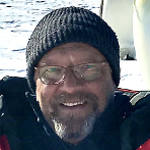 Was born in Saratov, Russia. In 1990 he received his Doctorate Degree (PhD) from the Russian Academy of Sciences. Since 2001, as a CNR employee, he has experience in marine molecular microbiology and has studied the microbial communities thriving in extreme environments, such as deep-sea hypersaline anoxic lakes, shallow thermal vents, crystallizer ponds of solar salterns, Antarctic sea-ice and Antarctic subglacial lakes. He is an internationally renowned expert in isolation and characterization of taxonomically and physiologically new extremely halophilic anaerobes, including sulfidogenic and polysaccharide-degrading haloarchaea, methylotrophic methanogens and previously uncultured representatives of the candidate phylum Nanohaloarchaea. He was the first to isolate the psychrophilic hydrocarbon-degrading bacterium, Oleispira antractica. He is the author of over 180 peer-reviewed publications (Google H index 58, almost 12,000 citation as of October 2021), including articles in Nature, Nature Biotechnology and PNAS. He has co-authored 11 patents. He is editor on board or ad hoc editor of several microbiological journals. Over the past 10 years, he has coordinated four projects and participated in many projects financed by the European Union and other international and national structures, including active Horizon 2020 Project FUTURENZYME (2021-24). He was Chief Scientist during nine Mediterranean oceanographic expeditions and participated in six Italian expeditions in Antarctica. He was co-supervisor of seven PhD Thesis.
Was born in Saratov, Russia. In 1990 he received his Doctorate Degree (PhD) from the Russian Academy of Sciences. Since 2001, as a CNR employee, he has experience in marine molecular microbiology and has studied the microbial communities thriving in extreme environments, such as deep-sea hypersaline anoxic lakes, shallow thermal vents, crystallizer ponds of solar salterns, Antarctic sea-ice and Antarctic subglacial lakes. He is an internationally renowned expert in isolation and characterization of taxonomically and physiologically new extremely halophilic anaerobes, including sulfidogenic and polysaccharide-degrading haloarchaea, methylotrophic methanogens and previously uncultured representatives of the candidate phylum Nanohaloarchaea. He was the first to isolate the psychrophilic hydrocarbon-degrading bacterium, Oleispira antractica. He is the author of over 180 peer-reviewed publications (Google H index 58, almost 12,000 citation as of October 2021), including articles in Nature, Nature Biotechnology and PNAS. He has co-authored 11 patents. He is editor on board or ad hoc editor of several microbiological journals. Over the past 10 years, he has coordinated four projects and participated in many projects financed by the European Union and other international and national structures, including active Horizon 2020 Project FUTURENZYME (2021-24). He was Chief Scientist during nine Mediterranean oceanographic expeditions and participated in six Italian expeditions in Antarctica. He was co-supervisor of seven PhD Thesis.
PARTICIPATION IN INTERNATIONAL VALUATION COMMITTEE:
2007-currently: Referee in Peer Review Evaluations of the European Research Council (ERC). EMM Registration Number: EX2006C118906.
2018-currently: Expert in Faculty 1000 Prime Opinions: https://facultyopinions.com/prime.
MEMBERSHIP IN PROFESSIONAL SOCIETIES:
2012-currently: Italian Society of Agro-Food and Environmental Microbiology (SIMTREA).
2016-currently: Society for General Microbiology, SGM, UK.
2017-currently: The Interregional Russian Microbiological Society, IRMS.
RESEARCHER ID H-1829-2016 Scopus - Author ID: 7005111470 ![]() https://orcid.org/0000-0003-1418-363X Google Scholar
https://orcid.org/0000-0003-1418-363X Google Scholar
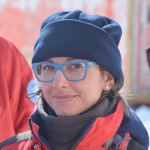 She received her Master of Science in Biology, her PhD in Environmental Sciences: Marine Environment and Resources, and specialization and continuing education courses in Applied Microbiology.
She received her Master of Science in Biology, her PhD in Environmental Sciences: Marine Environment and Resources, and specialization and continuing education courses in Applied Microbiology.
She has been a researcher at CNR since 2011, specializing in marine molecular microbiology and biotechnology. Her research activities are mainly focused on the deep sea environment and marine and terrestrial extreme ecosystems in both temperate and polar climates. Her main interests have been focused in studying microbial communities inhabiting extreme environments, their role in functioning of extreme ecosystems, as well as in isolating of new microbial taxa, genes, novel bioproducts and biomolecules for biotechnological applications. She is author/co-author of over 70 international peer-reviewed publications. She has participated in fourteen scientific oceanographic expeditions in the Eastern Mediterranean (several as Chief Scientist) and in two scientific expedition to Antarctica. She has coordinated of and participated in several national research programs (FIRB, PNRA) and international programs (EC, Horizon 2020 and ESF programs).
RESEARCHER ID S-9890-2017 Scopus - Author ID: 6507507411 ![]() https://orcid.org/0000-0002-3306-4938 Research Gate: Violetta La Cono
https://orcid.org/0000-0002-3306-4938 Research Gate: Violetta La Cono
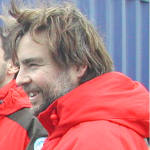 Laurea cum Laude in Biology (1990), at the II University of Rome. From 2001 to 2019, he was recruited as permanent position scientist at the Institute of Marine Sciences in Ancona.
Laurea cum Laude in Biology (1990), at the II University of Rome. From 2001 to 2019, he was recruited as permanent position scientist at the Institute of Marine Sciences in Ancona.
Currently, he works at the Institute of Polar Sciences of CNR in Bologna. His fields of interest include age determination through otolith analysis, reproductive biology and feeding habits of fishes from both Mediterranean and Antarctic waters. He participated to several research projects funded by EC, MIUR and PNRA.
He was involved for a long time with foreign scientists on Antarctic topics and participated to several international scientific cruises in the Southern Ocean (mainly Germany and USA). Currently, he is author/co-author of about 100 papers published on peer-reviewed journals (JCR).
Scopus - Author ID: 6701474004 ![]() http://orcid.org/0000-0002-3716-0054 Research Gate Google Scholar
http://orcid.org/0000-0002-3716-0054 Research Gate Google Scholar
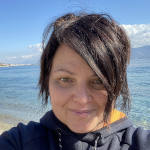 She has a degree in Biological Sciences (University of Messina) and a doctorate in Marine Science and Engineering (University Federico II of Naples). She is currently a CNR Researcher at the Institute of Polar Sciences (CNR-ISP), Messina, and was previously a research fellow at the Institute of Coastal Marine Environment (IAMC-Messina).
She has a degree in Biological Sciences (University of Messina) and a doctorate in Marine Science and Engineering (University Federico II of Naples). She is currently a CNR Researcher at the Institute of Polar Sciences (CNR-ISP), Messina, and was previously a research fellow at the Institute of Coastal Marine Environment (IAMC-Messina).
Her research activity is focused on the study of microbial communities present in deep and/or extreme marine environments, such as Deep Hypersaline Anoxic Basins (DHAB), Hydrothermal vents, as well as in polar environments, with particular interest in biodiversity, mapping of genes of biotechnological interest and bioinformatics analysis. She spent a period of training at the Oklahoma University (USA), at the Institute of Environmental Genomics. She has participated in ten oceanographic expeditions in the Mediterranean Sea aboard R/V Urania. She is co-author of publications in scientific journals. She has collaborated in national and international research projects (KILL SPILL- ULIXES- INMARE- RITMARE- DEEP_C - PON S.A.B.I.E. - COMMODE - MICROB3 - MAMBA - MIDDLE) and has been head of units (IAMC) for the Simply (Structures and IMmunologic Properties of LipopolYsaccharides from Antarctic psychrophilic bacteria) project.
![]() https://orcid.org/0000-0003-4768-182X Scopus - Author ID: 35620623600 Scholar
https://orcid.org/0000-0003-4768-182X Scopus - Author ID: 35620623600 Scholar
More...
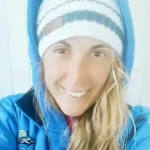 Marine biologist and oceanographer, Serena got three degrees from different universities: the undergraduate in Biological Sciences at the University of Genova, the master in marine biology at the University Politecnica delle Marche in Ancona, another master in 'Applied Physical Oceanography' at the University of Malta. She studied in detail the algae reproduction as well as the anchovies reproduction, while her specialisation as a marine biologist was about the study of the Sperm whales' acoustic. She wanted to protect the oceans and who lives in them, therefore in Malta she specialised into the study of the plastic pollution, with the use of a drone, deriving from an oceanic input as well as from humans, as a definition of a non education about the environment. Furthermore, her desire to know more in detail about other cetaceans species brought her for different summer seasons to Husavik, Iceland, working as a whale watching guide. From the humpback whales and the blue whales to the curiosity of knowing more about the ice, while looking at the glaciers in Iceland. Since then, she became a PhD student at the University of Ca' Foscari of Venice, in collaboration with the University of Milan-Bicocca, where she is studying the RICE ice core, in particular the fossils that she is finding into the core and the reason why they are there.
Marine biologist and oceanographer, Serena got three degrees from different universities: the undergraduate in Biological Sciences at the University of Genova, the master in marine biology at the University Politecnica delle Marche in Ancona, another master in 'Applied Physical Oceanography' at the University of Malta. She studied in detail the algae reproduction as well as the anchovies reproduction, while her specialisation as a marine biologist was about the study of the Sperm whales' acoustic. She wanted to protect the oceans and who lives in them, therefore in Malta she specialised into the study of the plastic pollution, with the use of a drone, deriving from an oceanic input as well as from humans, as a definition of a non education about the environment. Furthermore, her desire to know more in detail about other cetaceans species brought her for different summer seasons to Husavik, Iceland, working as a whale watching guide. From the humpback whales and the blue whales to the curiosity of knowing more about the ice, while looking at the glaciers in Iceland. Since then, she became a PhD student at the University of Ca' Foscari of Venice, in collaboration with the University of Milan-Bicocca, where she is studying the RICE ice core, in particular the fossils that she is finding into the core and the reason why they are there.
 He is interested in determining rates of aquatic processes involving sediment particles, using radioactive tracers and time-series sediment traps. Particle dynamics is then applied to the study of the effects of climate change on the marine and polar environment, such as: a) biogeochemical cycles of organic C and biogenic silica in the Southern Ocean, Fram Strait and Mediterranean Sea; b) Late Quaternary paleoceanographic reconstructions using biogenic and radionuclide components; c) estimates of atmospheric CO2 growth rate in remote and polar ocean; c) particle transport by dense water cascading down to the deep marine realm; e) historical reconstruction of the sediment pollution of lacustrine and coastal environments in highly populated and remote polar areas.
He is interested in determining rates of aquatic processes involving sediment particles, using radioactive tracers and time-series sediment traps. Particle dynamics is then applied to the study of the effects of climate change on the marine and polar environment, such as: a) biogeochemical cycles of organic C and biogenic silica in the Southern Ocean, Fram Strait and Mediterranean Sea; b) Late Quaternary paleoceanographic reconstructions using biogenic and radionuclide components; c) estimates of atmospheric CO2 growth rate in remote and polar ocean; c) particle transport by dense water cascading down to the deep marine realm; e) historical reconstruction of the sediment pollution of lacustrine and coastal environments in highly populated and remote polar areas.
Participation at EC and national projects. PI of projects funded by industry and ONR. PI or WP leader in Antarctica and Arctic projects. CNR scientific contact in EU-ARICE and EU-INTERACT III. Experience >30 years of oceanographic campaigns with 90 participations (18 as Chief Scientist) in the Mediterranean, Atlantic, Southern Ocean and Arctic ocean. Scientific coordinator of marine activities during 2 Italian expeditions in Antarctica. He is the pro-tempore Director of the Institute of Polar Sciences of the Italian CNR (CNR-ISP).
He is author or co-author of ca. 100 scientific papers published on ISI journals with Impact Factor, ca. 60 scientific papers published on no-ISI journals, 7 chapters of book, 30 technical reports and cruise reports. Citation number amounts to about 2500, with a Hirsch factor (h-factor) of 27 (font Scopus).
Scopus - Author ID: 6603776561 Research Gate Google Scholar
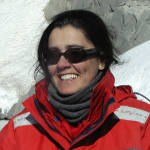 She got her Ph.D. in Environmental Sciences at the University of Messina in 2006. Actually, she is member of the Committee for the Collection and Management of Antarctic samples of the PNRA-MIUR, and of the Executive Committee of the CUR for the study of Extreme Environments and Extremophiles Francesco Maria Faranda (University of Messina).
She got her Ph.D. in Environmental Sciences at the University of Messina in 2006. Actually, she is member of the Committee for the Collection and Management of Antarctic samples of the PNRA-MIUR, and of the Executive Committee of the CUR for the study of Extreme Environments and Extremophiles Francesco Maria Faranda (University of Messina).
She collaborated with the University of Messina for the scientific management of the Italian Collection of Antarctic Bacteria of the National Antarctic Museum (CIBAN-MNA).
She participated to sampling campaigns in Antarctic and Arctic areas, as well as to oceanographic cruises in the Mediterranean. She is actively involved in national and international research projects in the fields of microbial ecology (diversity and function of prokaryotes) of polar environments, biotechnology of cold-adapted bacteria (e.g.,. search for xenobiotic degraders and biomolecule producers) and bacterial interactions. She is particularly interested in the bacterial association with benthic filter-feeders, and in the relationships between prokaryotes and chemical contamination.
She is author or co-author of more than 70 papers in international peer-reviewed journals, among which Physics of Life Reviews, Scientific Reports, Biotechnology Advances, Science of the Total Environment, Soil Biology and Biochemistry, PLOS One, Applied and Environmental Microbiology, Microbial Ecology, and several book chapters. She is peer-reviewer for international journals on ecology and microbiology, and scientific reviewer for project proposals for international polar agencies. She is member of the open-access journals Microorganisms (Section Microbial Biotechnology) and Diversity (Section Microbial Diversity), and Review Editor for “Frontiers in Marine Sciences: Marine Biotechnology”.
Scopus - Author ID: 57202031230 ![]() http://orcid.org/0000-0002-8842-083X Research Gate: Angelina Lo Giudice
http://orcid.org/0000-0002-8842-083X Research Gate: Angelina Lo Giudice
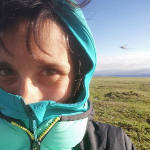 She attained the master’s degree with honours in Applied and Environmental Geology at the University of Turin in 2010, with a thesis entitled Distribution, origin and consequences of fluoride content in groundwater in an area of the central sector of the Ethiopian Rift. She specialized in the collection, analysis and dissemination of data in developing countries and in geological and hydrogeological mapping and modelling through GIS data management. The working experience in the Alpine environment allowed the deepening into pedological and geochemical subjects. She worked as study grant holder on the Nunataryuk EU-funded Horizon 2020 project, coordinated by the Alfred Wegener Institute, that aims to assess arctic permafrost thaw and study how it contributes to climate change.
She attained the master’s degree with honours in Applied and Environmental Geology at the University of Turin in 2010, with a thesis entitled Distribution, origin and consequences of fluoride content in groundwater in an area of the central sector of the Ethiopian Rift. She specialized in the collection, analysis and dissemination of data in developing countries and in geological and hydrogeological mapping and modelling through GIS data management. The working experience in the Alpine environment allowed the deepening into pedological and geochemical subjects. She worked as study grant holder on the Nunataryuk EU-funded Horizon 2020 project, coordinated by the Alfred Wegener Institute, that aims to assess arctic permafrost thaw and study how it contributes to climate change.
Present position: PhD Student at University Ca' Foscari Venezia, PhD in Polar Sciences; title of proposal: Modelling the fate of POPs distribution in permafrost: combine large scale to local perspective.
 Ministero dell'Universita e Ricerca
Ministero dell'Universita e Ricerca
Programma Ricerche Artico
Programma Nazionale di Ricerca in Antartide
 Ministero degli Affari Esteri e della Cooperazione Internazionale
Ministero degli Affari Esteri e della Cooperazione Internazionale
L'Italia e l’Artico
L’Italia e l’Antartide
CNR-ISP
National Research Council
Institute of Polar Sciences
c/o Scientific Campus - Ca' Foscari University Venice - Via Torino, 155 - 30172 VENEZIA MESTRE (VE)
Phone: +39 041 2348547 - E-mail: protocollo.isp AT pec.cnr.it
Fax: +39 041 2348 549 - Codice Fiscale: 80054330586 - P.I.:02118311006
Unless otherwise indicated, the content of this site is licensed : Attribution Non Commercial Share Alike 4.0 International (CC BY-NC-SA 4.0)
Privacy policy e Cookie policy - Transparent administration (CNR)








